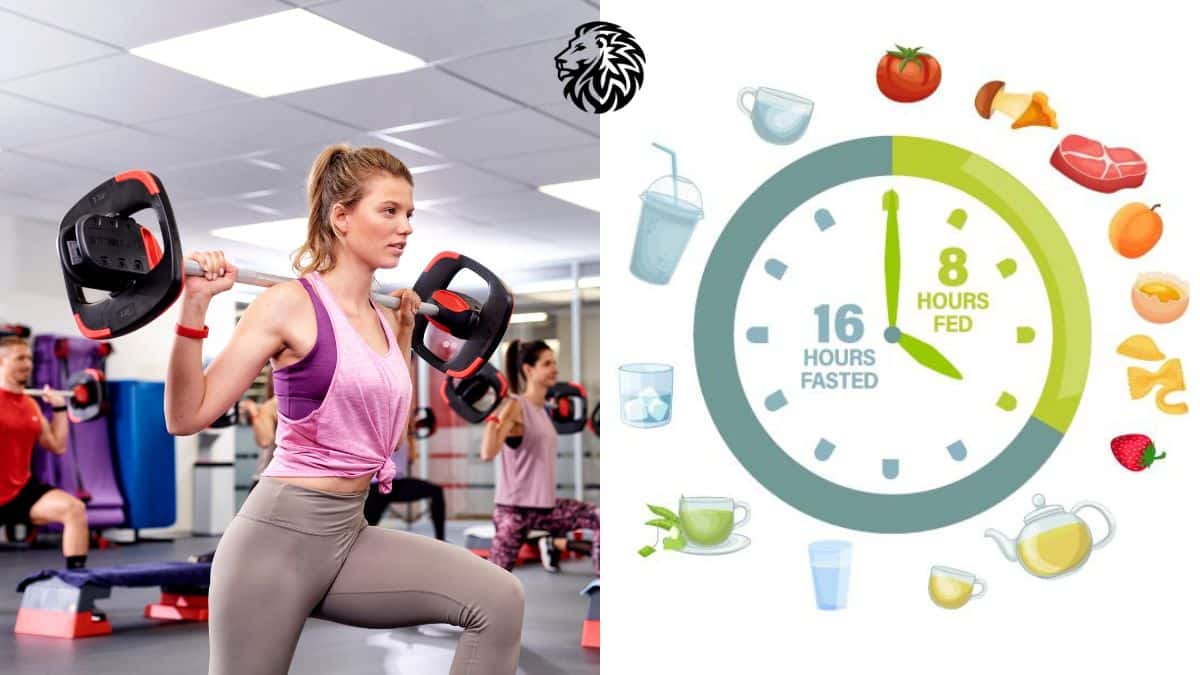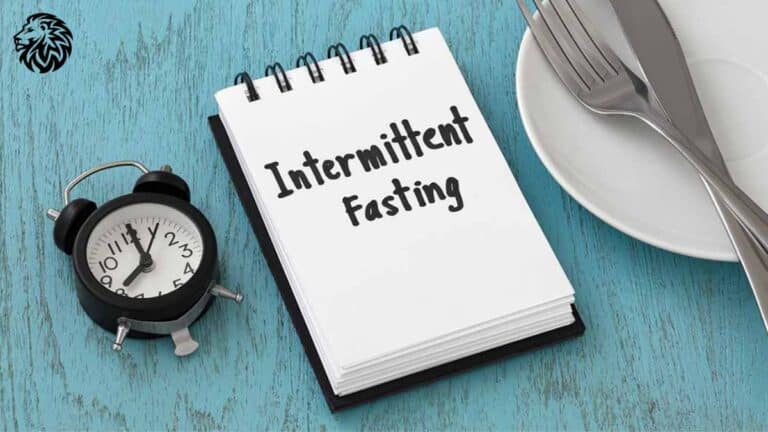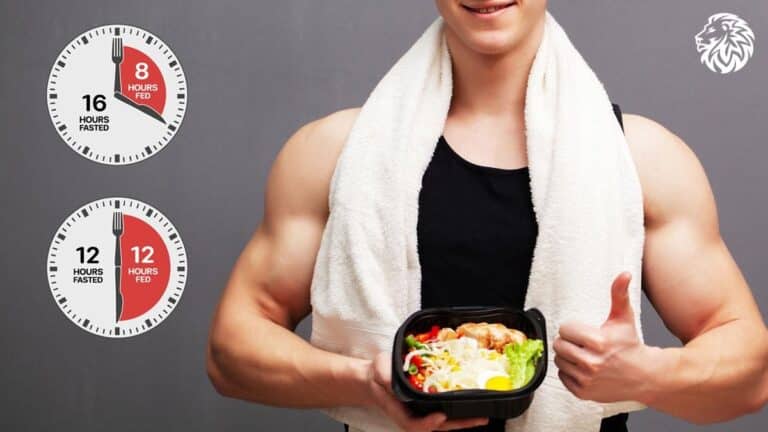Exercising During Intermittent Fasting
Let’s chat about working out while doing intermittent fasting—what sacrifices you’ll need to make and what gains you can expect in terms of burning fat and keeping your cells in tip-top shape.
Effects of Fasted Exercise on Fat Loss
Ever thought of pairing exercise with intermittent fasting? It’s like a tag team for burning fat fast. Here’s the scoop: when you’ve already used up your glycogen, your body dips into those stubborn fat reserves. Perfect for shedding those extra pounds. Just a little heads up though.
- Burning Away Fat: With glycogen nearly used up, your body chooses fat as its go-to energy source.
| Detail | Fasted Exercise |
|---|---|
| Go-To Energy | Fat |
| Glycogen Levels | Pretty Low |
| Feeling Energetic? | Up and Down |
- Possible Muscle Loss: Hitting the gym on an empty stomach might mean your body munches on muscle for fuel, potentially zapping your energy and muscles.
For more juicy details, see our piece on intermittent fasting and fat loss.
Impact on Cell Regeneration
When you exercise without eating first, your body’s cells might respond in interesting ways. It’s like giving them a shot of espresso—insulin sensitivity gets a boost, which helps keep your blood sugar levels steady. All this is good news for keeping your cells youthful.
- Cell Techie Stuff: Exercise when hungry fiddles with your muscle’s biochemistry, improving how they handle insulin.
- Better Insulin Sensitivity: This means smoother blood sugar management, putting diabetes on the backburner.
Check out more on intermittent fasting and autophagy if you’re intrigued.
Being aware of these effects can seriously help in leveling up intermittent fasting for weight loss and your health game. Remember to think about what your personal fitness dreams look like, and maybe have a chat with a fitness pro before changing things up. For some handy advice, peek at our intermittent fasting tips.
Considerations for Muscle Building
Alternatives for Muscle Growth
If you’re on a mission to bulk up, thinking of ditching food for long stretches might not be your best bet. Maybe look into other eating plans that can be more muscle-friendly. Imagine adding protein-rich grub to your routine and seeing those gains without the unexpected surprises of skipping meals. Traditional muscle-building diets, loaded with protein and have smart meal timings, offer reliable support for muscle repair and growth.
Check these out for muscle magic:
- Classic Bodybuilder’s Diet: This plan feeds you multiple meals daily, keeping your protein and carb levels steady.
- Protein-Packed Meals: Go big on proteins like chicken, fish, and legumes to mend those muscles.
- Strategic Carbs: Time your carb intake around workouts to maximize energy and muscle recovery.
Risks and Benefits
Before you venture into fasting your way to muscles, it’s wise to mull over possible risks and perks. If you’re taking meds for conditions like diabetes or heart issues, fasting might stir the pot badly. Cutting meals and skimping on calories could lead to mineral chaos, especially regarding sodium and potassium—yikes!
Potential Pitfalls:
- Feeling Crummy: Get ready for some unwanted guests: headaches, tiredness, mood swings, and you might even find yourself a bit “stuck,” if you catch my drift.
- Hormone Jazz: Your body’s hormone symphony, especially for the ladies, might hit some sour notes affecting your cycle and how you feel overall.
- Nutrient Shortage: Skipping out on meals means you might miss critical nutrients, sidetracking your muscle and bone development plans.
Sweet Upsides:
- Fat Gone Wild: Fasting might rev up your fat burn, which can help in sculpting that lean look you crave.
- Cell Fixer-upper: While fasting, your body might hit repair mode, keeping things ticking smoothly post-workout.
- Meta Boost: Get your cell engines running better with improved insulin skills.
| Type | What Happens |
|---|---|
| Feeling Crummy | Get comfy with headaches, sluggishness, mood changes, constipation |
| Hormone Jazz | May impact women’s menstrual cycles and general health |
| Nutrient Shortage | Might skimp on must-have vitamins and minerals |
| Fat Gone Wild | Boosts fat burning |
| Cell Fixer-upper | Supports body repair processes |
| Meta Boost | Could enhance insulin response |
Thinking about fasting while bulking up? Dig into more info on muscle gain and skipping meals once you’ve figured out what you want health-wise. Always have a chat with a healthcare pro before flipping the script on your diet or workout game.
Consultation and Precautions
So, you’re thinking about jumping into intermittent fasting while keeping up with your exercise grind? Cool idea, but hold up! Let’s make sure you’re doing it without risking your health. Chatting with folks who know their stuff—like health pros—can clear up what could happen to your metabolism down the road.
Importance of Professional Advice
Here’s the deal: intermittent fasting might not be for everyone. Your buddy might swear by it, but your body’s different, right? If you’ve got medications lined up or if there’s a bit more to consider health-wise, hit up a healthcare pro before diving in. Rocking your plan with some expert pointers can dodge those risky what-ifs of mixing fasting with exercise (UC Davis Health).
When you’re getting the rundown from the pros, you get a game plan that’s all about you and your goals. This way, you’re not just safe—you’re also smashing those fitness aims! Wanna learn the ropes of intermittent fasting? Check out our newbie-friendly guides: intermittent fasting for beginners and mix it up with different intermittent fasting methods.
Long-Term Metabolism Effects
Let’s chat metabolism. Fasting switches things up. Chelsea Amengual, MS, RD, says fasting might zap your calories and energy, which could slow that metabolic rate over time (Healthline). And Dr. Priya Khorana? She’s on the same page, emphasizing that the fasting-exercise combo might pump the brakes on your metabolism too (Healthline).
| Effect | What’s Happening Here? |
|---|---|
| Calorie Depletion | Gobbling fewer calories can slow your metabolism, so more’s not necessarily better here. |
| Energy Levels | Going long on fasting might tank your energy—bye-bye, all out sprints! |
| Muscle Biochemistry | Busting out exercises can tweak muscle stuff and boost how your body uses insulin (Healthline). |
To dodge any pitfalls, think balanced. You need your munchies and liquids sorted to keep your game strong without messing up your metabolism. Our detailed guide on intermittent fasting and metabolism might be just the thing.
Before you flip the coming workout week upside down, remember, smart changes call for a little intel and foresight. After all, you’re in it for the long game—stay safe, stay informed! Need more nifty nuggets of wisdom? Swing by our intermittent fasting tips page.
Timing and Performance
When you’re mixing intermittent fasting with exercise, timing can be your buddy or your enemy. Getting it right means squeezing out all the perks from both fasting and your workouts without feeling like you’ve been flattened by a steamroller.
Workout When? Timing Tips
Okay, so when should you hit the weights or roll out that yoga mat? It’s all about syncing up your workouts with your meals. Know when you’re most pumped up to huff and puff. Diet whiz Christopher Shuff suggests picking your sweat session time—before you start eating, while you’re eating, or after the last bite—based on what works for your oomph levels and your gym goals (Healthline).
Workout Times:
| When to Work Out | What’s Good | What’s Not So Hot |
|---|---|---|
| Before You Eat | Torch extra fat (since glycogen’s low) (Healthline) | You might feel like a deflated balloon |
| While Eating | Energy for days, crush those workouts | Stomach might whine if you’re too quick post-meal |
| After You Eat | Turbo boost your intense workouts | Not as much fat burning power |
Post-Workout Chow Down
What you eat after sweating it out is a big deal, especially when you’re combining fasting with exercise. The right grub can help those muscles bounce back faster and stronger.
The Diet Dynamo, Christopher Shuff, stresses chowing down on protein after workouts, especially if you’re into hoisting heavy stuff (Healthline). Protein’s your muscle’s best pal, patching them up and getting them ready for the next round.
Post-Workout Fuel:
| Nutrient | Why It’s Awesome | Foods to Eat |
|---|---|---|
| Protein | Fixes up and builds muscles | Chicken, fish, tofu, protein shakes |
| Carbs | Fills up your energy tank | Sweet potatoes, rice, fruits |
| Good Fats | Steadies recovery and gives oomph | Avocado, nuts, olive oil |
Eating a good mix of protein, carbs, and fats post-gym can get you back on your feet quicker and stronger.
Want the full scoop on crafting your grub? Check out our intermittent fasting meal plan.
Juggling fasting and workouts ain’t for the faint-hearted, it takes some serious planning, especially with your schedule and meals. Follow these tricks, and you’re set to go the extra mile on your health trip with fasting as your sidekick. For more mind-blowing tips, see our pieces on intermittent fasting benefits and intermittent fasting and muscle gain.
Safety Tips for Fasted Exercise
Alright, you’re looking to get your sweat on while skipping breakfast or maybe that midnight snack—sounds like intermittent fasting is your jam! Here’s how you can stay safe while flexing those muscles without the fuel you’re used to.
Pre-Workout Preparations
Jumping into a workout without chow can be tricky. Here’s how you can make it work for ya:
- Timing’s Everything: Picking when to exercise is a bit like finding your favorite pizza topping; it might take some trial and error. Some folks love exercising when they’re fasting, while others find it easier when they’re about to break their fast with some grub.
- Take it Easy: Pushing it to the limit right off the bat might leave you feeling spent. Start with workouts that keep your heart rate in check, then mix it up if you’re feeling amazing.
- Head’s Up on Body Signals: If your head’s spinning or you’re feeling woozy, that’s your body waving the red flag! Tune in and don’t push harder if it’s telling you to slow the heck down.
Need a jolt of energy? Grab a nibble like a sliver of apple or a few nuts. Think of it as your secret weapon without fully diving into a meal.
Hydration and Electrolyte Balance
Water and electrolytes are your workout sidekicks. Gotta keep them on hand, right?
- Stay Wet: Keep that water bottle handy before, during, and after you get moving. Dehydration can sneak up on ya, especially when you’re running on empty.
- Salty Side: Electrolytes like in coconut water or supplements can replace the good stuff that leaks out with sweat. Keep ’em topped up!
- Drink Smart: Don’t go chugging a swimming pool’s worth. Adjust based on how hard and long you’re pushing it – sipping around half a liter per hour can do wonders.
Here’s a quick peek at how much you might need:
| Exercise Time | Water to Keep Nearby |
|---|---|
| Before an hour | About a bottle of water |
| 60 to 120 mins | About enough for a water fountain stop |
| Over 2 hours | Prepare like a camel on a trip! |
Nailing the balance keeps you on top of your game, even when you’re dodging meals. For the nitty-gritty on fasting and getting lean, hit up our piece on intermittent fasting and fat loss.
Different fasting flavors might fit better with your sweat sessions—or maybe not. Test the waters with various intermittent fasting plans to see what gels best. As always, chat with a doc before switching up your food or fitness habits like a mad scientist. More gems in the intermittent fasting tips section await!
Impact on Muscle and Metabolism
So, you’re thinking about intermittent fasting and exercise and how it plays with your muscles and metabolism. Let’s break it down to see what’s really happening beneath the surface—the good, the not-so-good, and the downright sweaty truths.
Muscle Breakdown Concerns
You know, the big scare with fasting before exercise is losing muscle. If you’re running on empty, your body might decide to chow down on muscle protein for fuel instead of what it usually gets from glucose. This means you might just add “ran out of gas” to your list of workout woes. Trust us, that’s not the kind of pit stop you want (Healthline).
| What’s Up | What It Means |
|---|---|
| Muscle Breakdown | Your body might eat muscle for energy when short on glucose |
| Energy Levels Crash | Less energy might make your workout hit snooze halfway through |
| Decreased Performance | Lower energy might clip your workout wings |
To keep those muscles, munch down the right stuff after you sweat it out. Stuff yourself with protein-packed snacks to patch up and power your muscles back up (Healthline). Tweaking your intermittent fasting schedule to sneak in some protein near your workout time can really help keep those muscles from vanishing.
Benefits of Fat Burning
Sure, the muscle worry is there, but you might just ride the wave of fabulous fat burning when you fast and workout. Exercising before breakfast can spike fat burning, helping you torch more calories and give your metabolism a well-deserved kick in the pants (Healthline).
| Kudos | What It Does |
|---|---|
| Burn Baby Burn | Watch fat melt away with those fasted runs and reps |
| Metabolism Boost | Less fat + more muscle = metabolism in overdrive |
| Keep the Pounds Off | Fat’s out, muscles are in, and weight stays balanced |
Rev up your routine and mix in some high-intensity interval training (HIIT) and strength workouts to really crank up that fat-burning engine. Want a deep dive into strategies? Peek at our intermittent fasting and muscle gain guide for more juicy deets.
Remember, fasting or not, health comes first. Stay hydrated and keep a balanced diet in mind. Don’t skip our tips on pre-workout preparations and maintaining hydration and electrolyte balance for smart, safe workouts.







